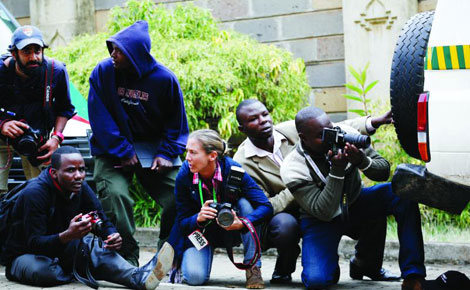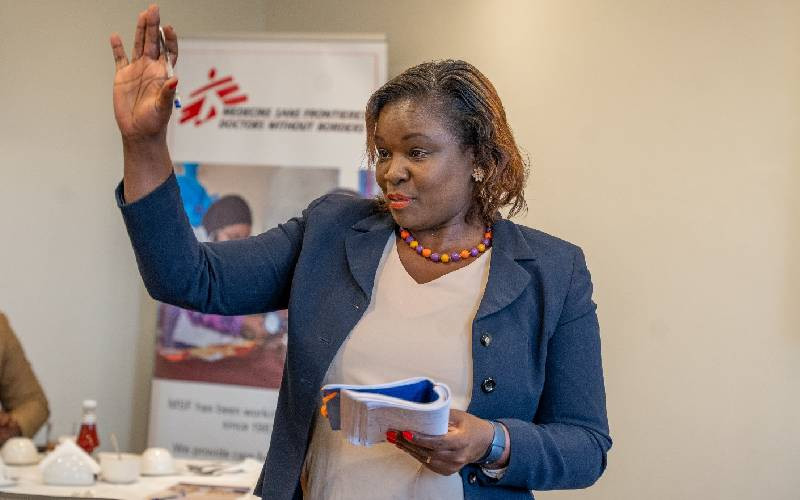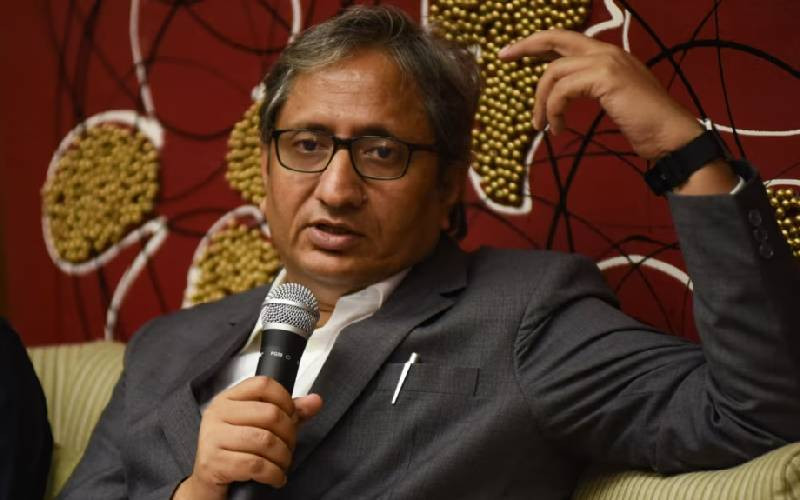
NAIROBI: Kenya's media freedom standing has dropped drastically, a global media watchdog has said.
The group, Reporters Without Borders, claims that Parliament has played a major role in gagging the Press in Kenya.
The group, through its 2014 World Press Freedom Index, accuses MPs of passing retrogressive legislation as a way to curtail media freedom in the country. It also points fingers at the Government's response to last year's media coverage of the Westgate terrorism attack.
Kenya has slipped 19 places, registering one of the most noteworthy falls in Africa alongside Mali, the Central African Republic and Burundi.
Kenya is currently ranked at position 90 out of the 190 countries that were surveyed, with the index stating that press freedom in Kenya suffers noticeable problems.
Finland, the Netherlands and Norway have been recognised as the most free countries for the media, with Iran, China and North Korea identified as most punitive.
While the worst falls in press freedom in Africa were due to armed conflicts, Kenya stands out for having in place laws that raise the risk profile for local and foreign journalists in the country.
"In Kenya, the Government's much criticised authoritarian response to the media coverage of the Westgate Mall attack was compounded by dangerous parliamentary initiatives, above all, a law adopted at the end of 2013 creating a special court to judge audio-visual content," reads the report in part.
The new rankings come barely days after the tabling of the Parliamentary Powers and Privileges Bill, 2014, which aims to bar journalists and the public from scrutinising the work of Parliament.
PUBLIC SCRUTINY
The Bill, which has been criticised by members of the Press, media owners, regulators and a section of MPs, is seen as an attempt by Parliament to shield itself from public scrutiny.
One of the clauses singled out as retrogressive imposes a Sh500,000 fine and jail term on a journalist who publishes reports that, in the lawmakers' judgment, are deemed defamatory to Parliament.
Witnesses summoned to testify before the House committees and failing to appear will also be required to pay a fine of up to Sh500,000.
The Bill has been termed illegal and unconstitutional by several lawmakers, with the Media Council of Kenya, Media Owners Association, Kenya Union of Journalists and Editors Guild all threatening legal action against it.
Stay informed. Subscribe to our newsletter
Journalists and media houses suffered another blow last year when President Uhuru Kenyatta assented to the Kenya Information and Communications (Amendment) Bill 2013.
 The Standard Group Plc is a
multi-media organization with investments in media platforms spanning newspaper
print operations, television, radio broadcasting, digital and online services. The
Standard Group is recognized as a leading multi-media house in Kenya with a key
influence in matters of national and international interest.
The Standard Group Plc is a
multi-media organization with investments in media platforms spanning newspaper
print operations, television, radio broadcasting, digital and online services. The
Standard Group is recognized as a leading multi-media house in Kenya with a key
influence in matters of national and international interest.
 The Standard Group Plc is a
multi-media organization with investments in media platforms spanning newspaper
print operations, television, radio broadcasting, digital and online services. The
Standard Group is recognized as a leading multi-media house in Kenya with a key
influence in matters of national and international interest.
The Standard Group Plc is a
multi-media organization with investments in media platforms spanning newspaper
print operations, television, radio broadcasting, digital and online services. The
Standard Group is recognized as a leading multi-media house in Kenya with a key
influence in matters of national and international interest.










